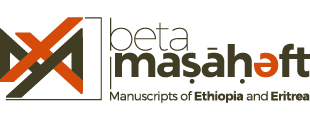Organizing field work in a conflict area: the experience of the project Beta maṣāḥǝft
by Denis Nosnitsin (Universität Hamburg, 30 November 2023)
The project Beta maṣāḥǝft: Manuscripts of Ethiopia and Eritrea (Schriftkultur des christlichen Äthiopiens und Eritreas: eine multimediale Forschungsumgebung) is a long-term project funded within the framework of the Academies’ Programme (coordinated by the Union of the German Academies of Sciences and Humanities) under survey of the Akademie der Wissenschaften in Hamburg. The project is hosted by the Hiob Ludolf Centre for Ethiopian and Eritrean Studies at Universität Hamburg. The project aims at creating a virtual research environment for managing complex data related to the predominantly Christian manuscript tradition of the Ethiopian and Eritrean Highlands.
The core of the project is a systematic overview of the rich manuscript heritage. The team encodes both the descriptions of known manuscripts from published catalogues and produces new descriptions for previously unknown and/or uncatalogued manuscripts. For this latter task, reliable cooperation with local institutions in Ethiopia and Eritrea and regular field and digitization missions to the research area are of primary importance. Among the areas of primary importance is the historical core of the Ethiopian-Eritrean civilization, now divided between the northern Ethiopia (the province of Tigray, where the ancient capital of Aksum is located) and southern Eritrea. The long-lasting tensions between the two states have so far rendered impossible active research on the Eritrean side of the border (while partnership with the local institutions such as the Research and Documentation Centre in Asmara has been successfully established, and a training programme has been offered, it has not been possible to carry out extensive field research). Yet fruitful cooperation had been possible for many years with the authorities of Tigray. One of the predecessor projects, Ethio-SPaRe: Cultural Heritage of Christian Ethiopia – Salvation, Preservation, and Research, funded by the European Research Council under the 7th Research Framework Programme IDEAS (PI Denis Nosnitsin, Independent Researcher Starting Grant 240720, December 2009–May 2015), successfully established lasting cooperation and digitized over 2,000 manuscripts in Tigray; over 1,000 descriptions accompanied by the digital copies are now part of the Beta maṣāḥǝft research environment.
The outbreak of an armed conflict between the Federal Government of Ethiopia and the regional Government of Tigray in November 2020 collapsed many hopes of research projects and cooperation between western and local educational institutions. In the course of the war, the universities in Tigray region were severely affected and the universities’ staff was struggling for physical survival. This was happening not only during the time of the open warfare but even more so during the so-called ‘Siege of Tigray’ (c. July 2021–the fall of 2022). In that time, neither research nor educational activities appeared to be possible; universities and institutions in charge of the cultural heritage were closed, and salaries were not paid. Significant physical damage was caused both to academic institutions and to cultural heritage sites. The partners of the project Beta maṣāḥǝft now found themselves in an extremely difficult situation.
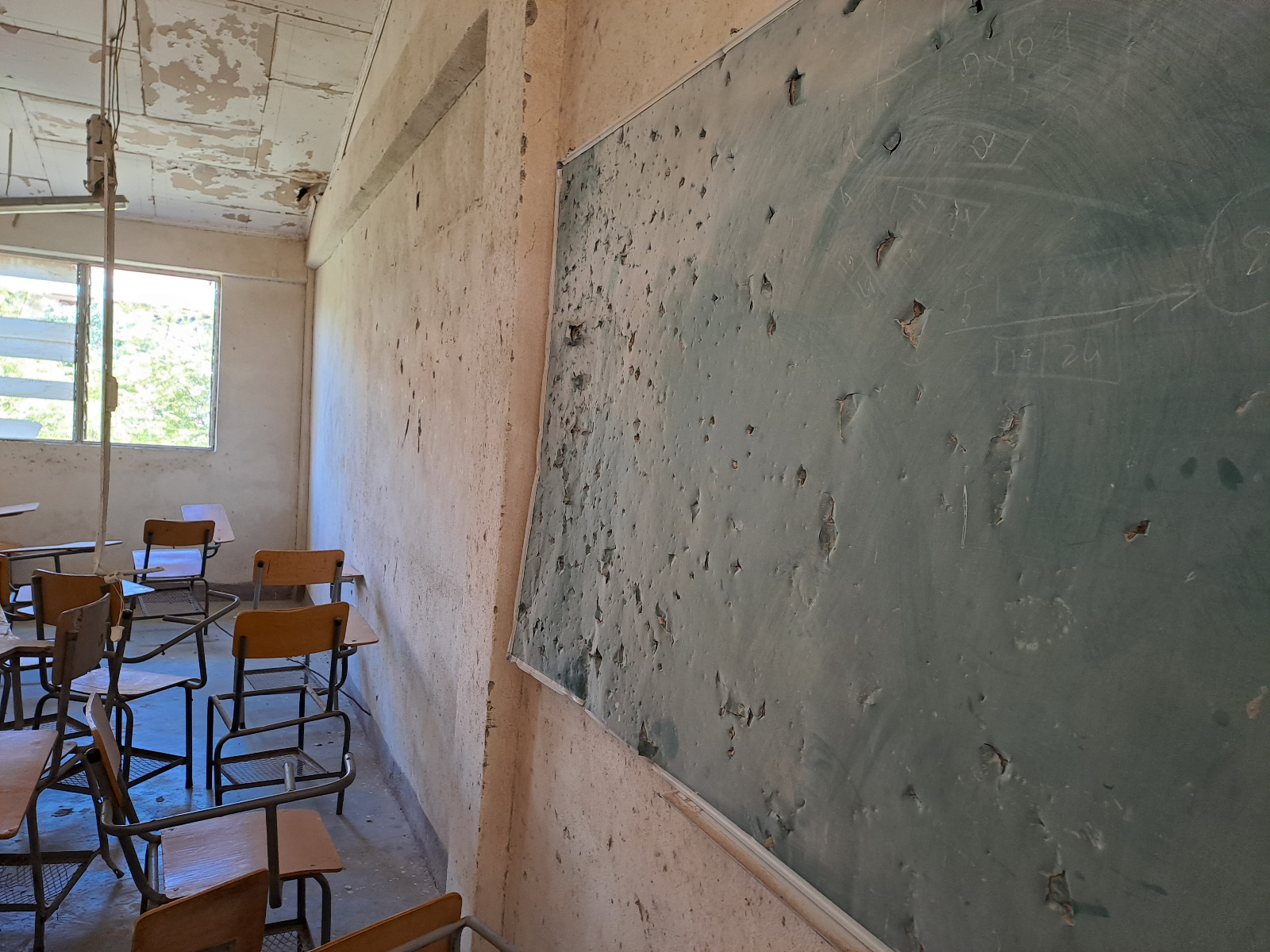
Extensive field research in the region - which had been long planned in cooperation with the local partners to document the valuable manuscript heritage preserved in the churches and monasteries in Tigray - had already been put on hold during the coronavirus pandemic. Due to the military actions and the siege of Tigray, the travel warning of the Foreign Ministry of Germany was issued, making any travel into the region impossible.
Not discouraged by the appalling situation, the project was looking for ways to maintain co-operations, support the colleagues,* and access the relevant materials in the area. (As early as January 2021, the Hiob Ludolf Centre for Ethiopian and Eritrean Studies, which hosts the project Beta maṣāḥǝft, launched an Appeal for the Salvation of the Cultural Heritage of Tigray, endorsed by 90 scholars worldwide. )
Several creative solutions emerged. Contacts were maintained as private initiatives, gradually formalized as uncomplicated yet quite reliable working schemes (based on small contracts with Universität Hamburg). Between July 2021 to July 2023 the project Beta maṣāḥǝft engaged two researchers from Adigrat University several times. ʿAddigrāt is one of the main cities of Tigray located close to the boundary with the State of Eritrea, and it was in the epicentre of the conflict from its beginning (see also fig. 1, fig. 2). Adigrat University was opened in July 2011, in that time being composed of only four colleges. The University developed quickly and in 2017 it accommodated six colleges with 48 departments while the students’ number exceeded 20000. The field research on behalf of Beta maṣāḥǝft was conducted by Mr Hagos Gebremariam MA, lecturer and research assistant at the Department of Sociology, and Mr Amanuel Abrha MA, lecturer and research assistant at the Department of Archaeology and Heritage Management.
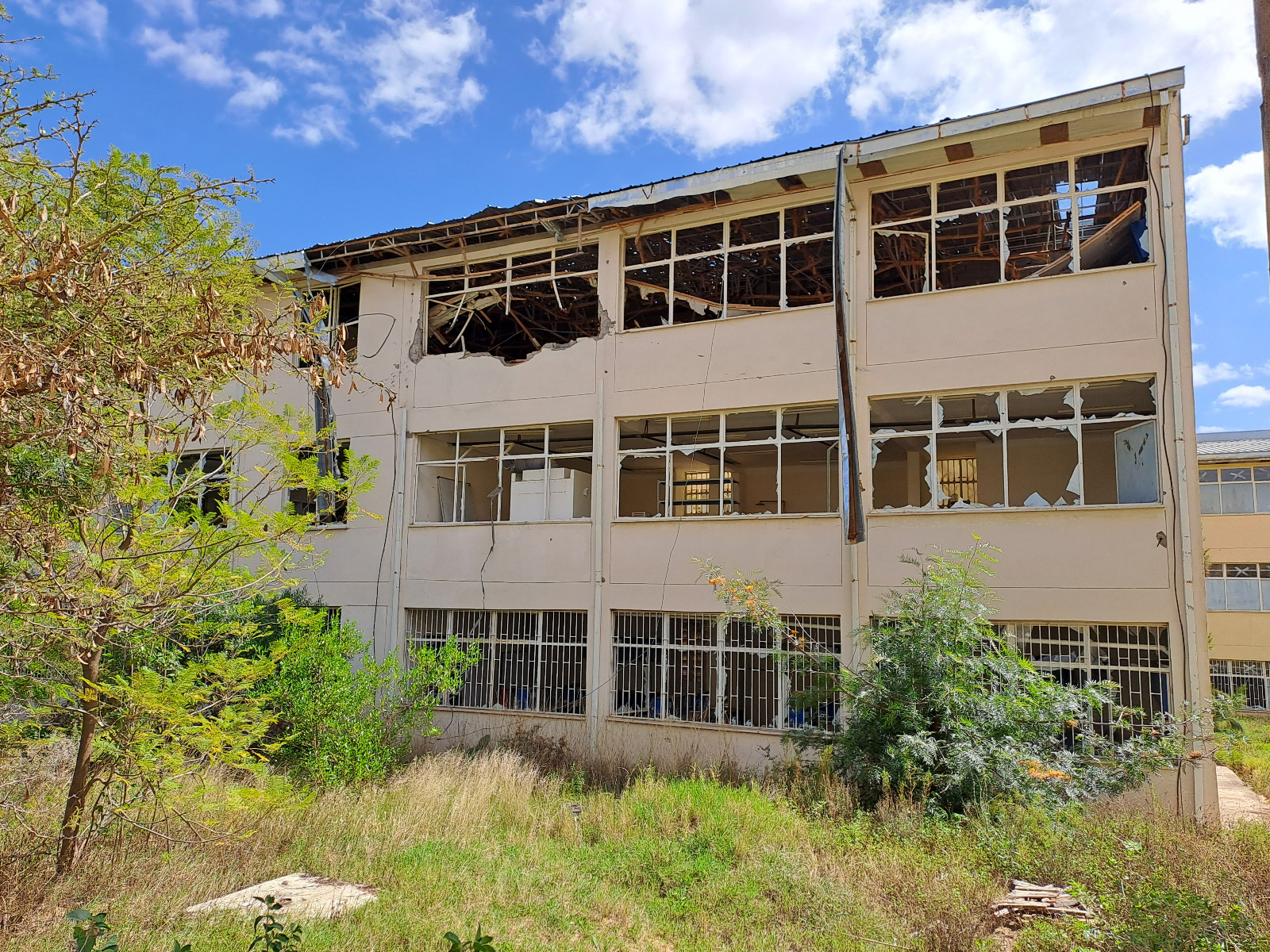
The research tasks completed in this way were, among others:
1) A study of the ecclesiastical landscape in the region of Gulo Makadā (East Tigray), especially around the church of Lǝggāt Qirqos, and the condition of some manuscript repositories there;
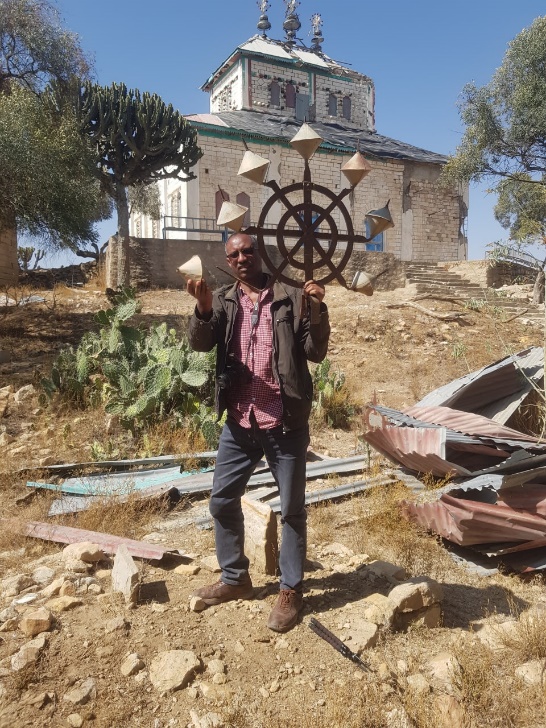
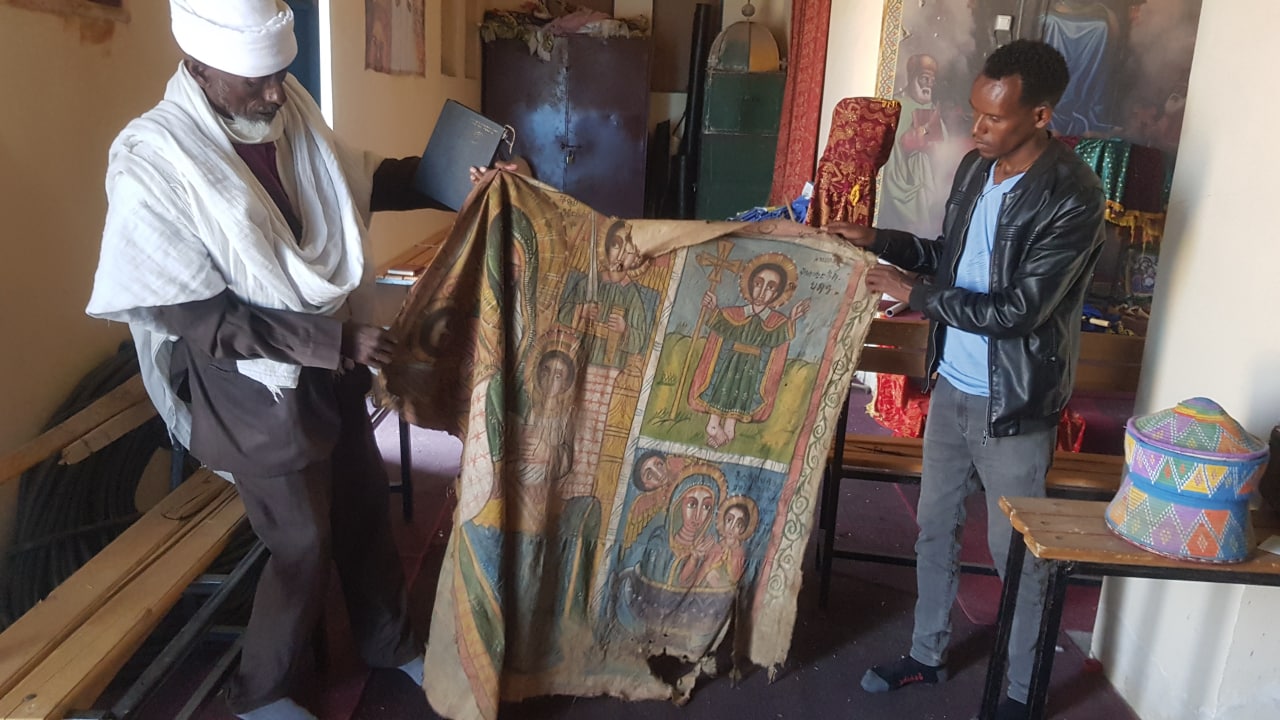
2) Gathering information about Lǝggāt ‘the village of scribes’ (associated with the church of Lǝggāt Qirqos), a research trip thereto;
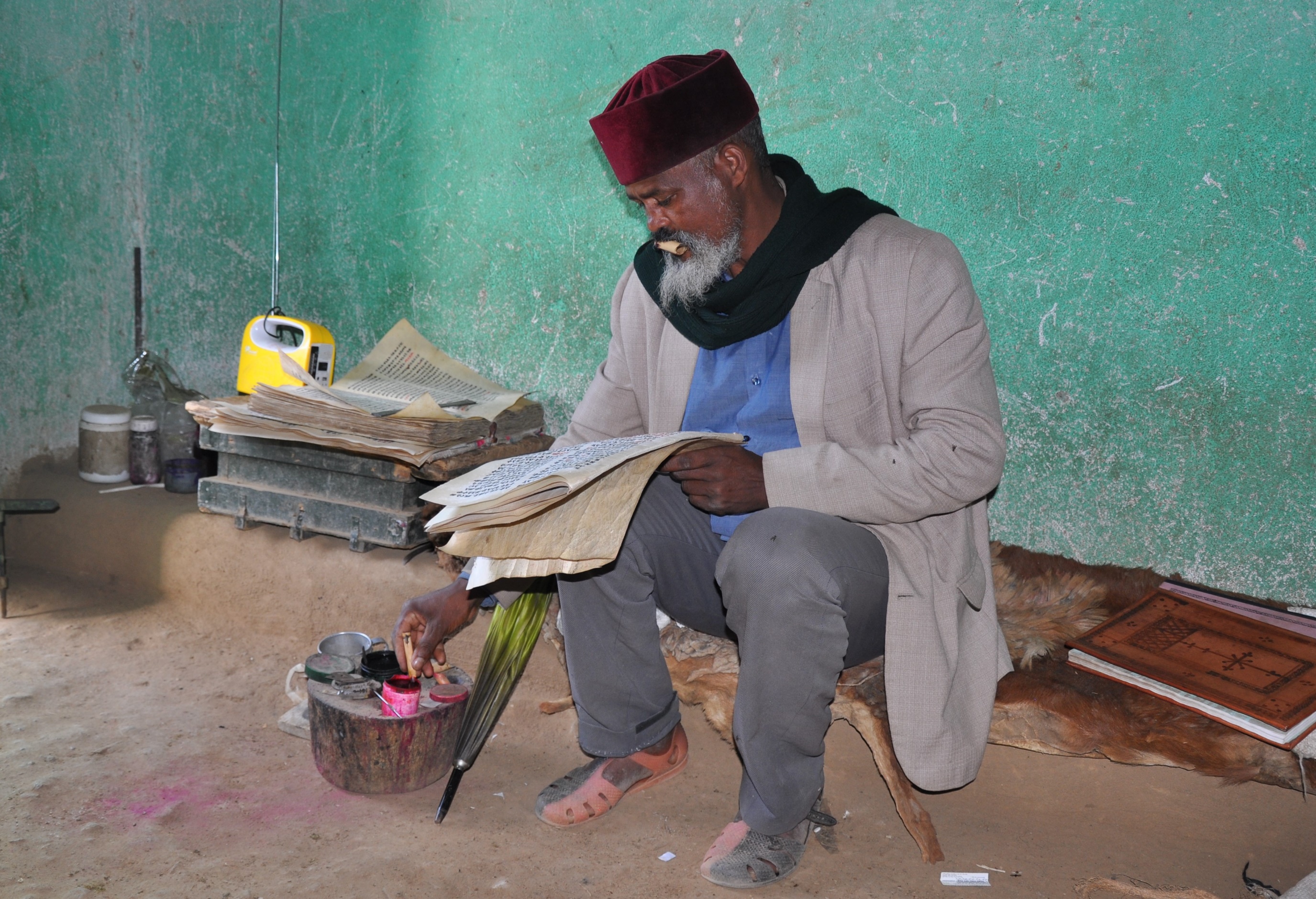
3) A survey study of the church Maʿārigo Śǝllase (the region Subḥā Sāʿsi) and its manuscript collection;
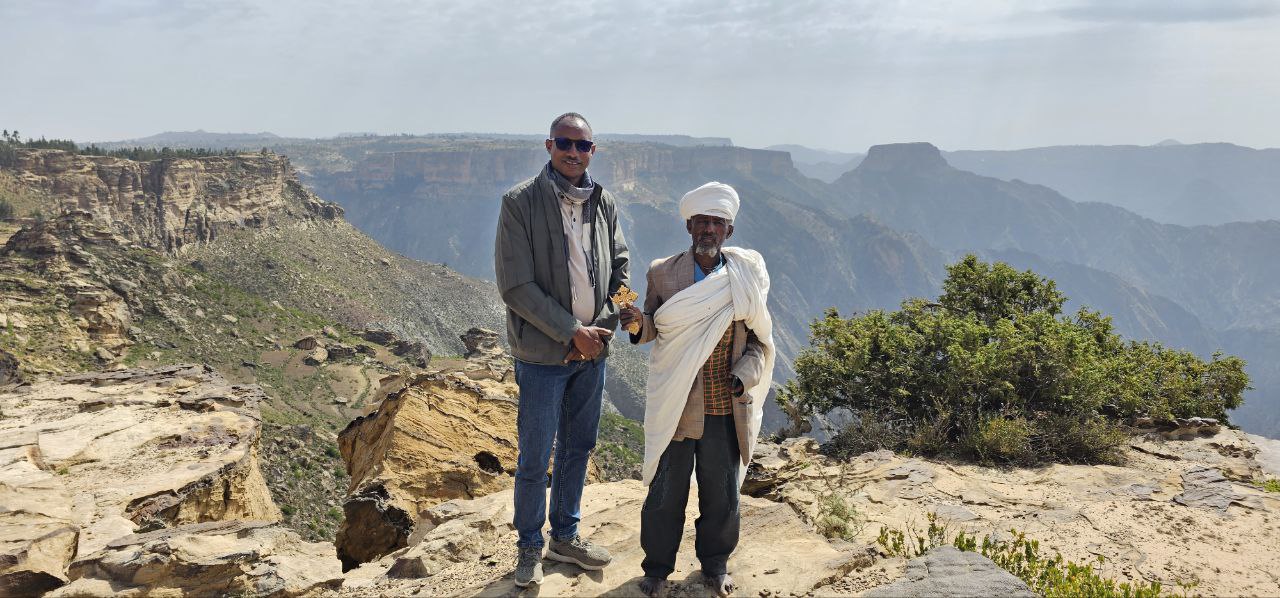
4) Carrying out of some minor reconnaissance tasks, such as enquiries about some selected ecclesiastic sites and their manuscript collections, checking of the spelling of the local names and terms, clarification of some features of the local manuscript culture.
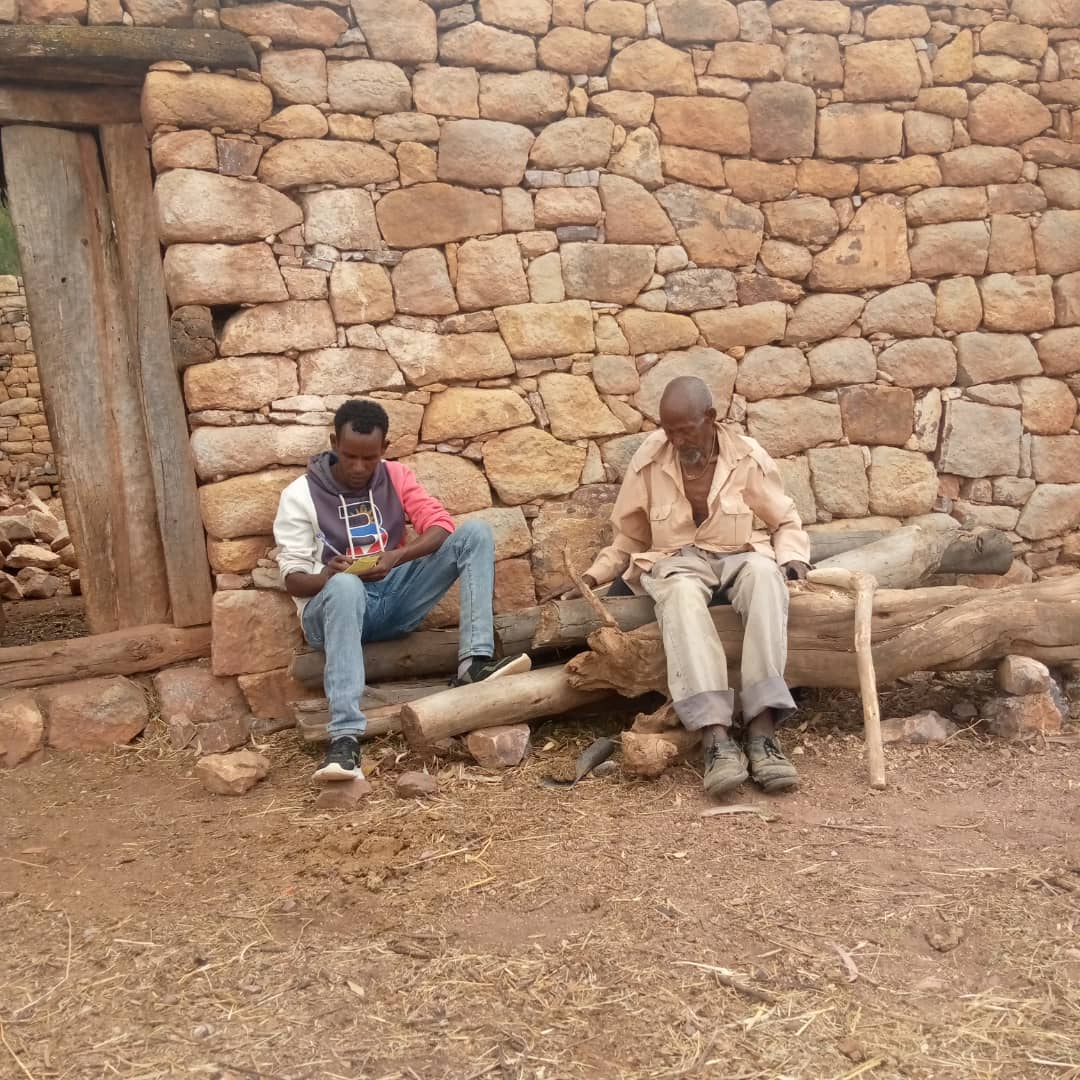
In this way, against all odds, the research tasks could be completed. Means of communication were very limited, the transportation was dear, some parts of the research area were sealed off or dangerous for entering. The use of photography was restricted to mobile phones, and no opportunity to send any better research equipment to Tigray was available. Internet connection was accidentally available and its quality allowed sending only a limited amount of digital materials. The situation on the ground was frequently chaotic and non-transparent, especially between July 2021 and October 2022. Nevertheless, the field work brought tangible results. A part of the material has been already published, a part is being incorporated into the database of Beta maṣāḥǝft, and some more information will be made accessible in the near future.
Needless to say the engagement has played an immensely important role for the Ethiopian colleagues, in practical terms as a source of income in the time of extreme economic hardship, and in professional terms as a way to actively participate in research activities and scholarly work, in collaboration with a foreign institution. Of great psychological help was the mere fact that the expertise and skills of the local academicians trapped in war were still required, in the time when no one around them would think of any education, research or scholarship.
The team of Beta maṣāḥǝft hope very much that the collaboration with Adigrat University and its dynamic and professional staff will continue in various forms now and in the future, as peace seems to be prevailing in northern Ethiopia. The experience of Beta maṣāḥǝft in organizing field research in extremal conditions is quite valuable and can be taken into consideration by others who may face a similar type of situation.
*In addition to the contacts mentioned, the project has also offered a PhD scholarship in Hamburg to a promising young scholar from Tigray, Guesh Solomon Teklu, and has supported his field research at another site in Tigray, Č̣āč̣ara Giyorgis.

